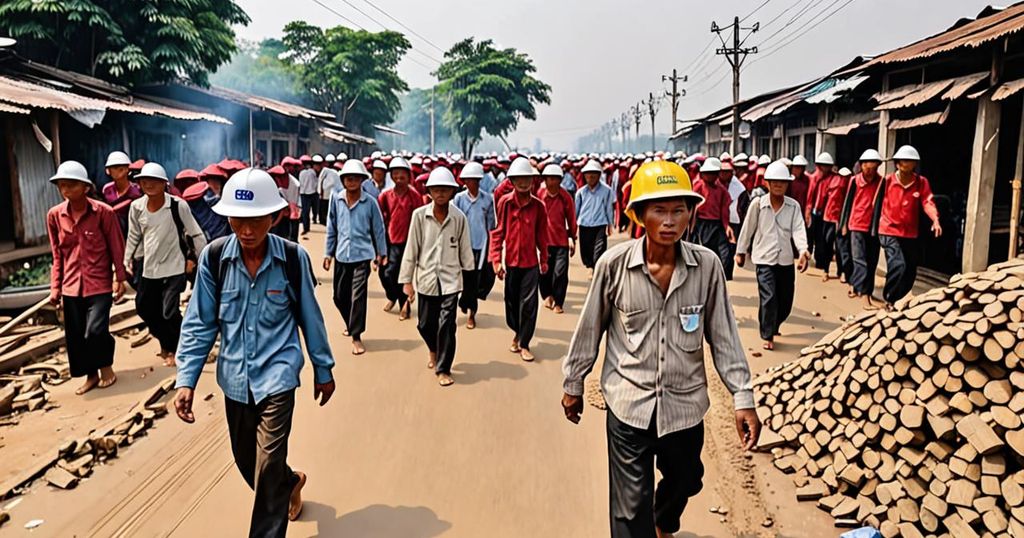Myanmar’s Civil War Takes a Huge Toll on Workers
Amidst the ongoing civil war in Myanmar, it is the labor force that bears the brunt of the conflict. Following the military’s assumption of power in 2021, the nation has descended into a state of turmoil, with the loss of thousands of civilian lives and the displacement of millions.
Since the military takeover, there has been a persistent wave of protests and civil unrest against the junta’s regime. Various sectors of Burmese society have united in resistance against the army, leading to widespread conflict throughout the country. The military’s presence has primarily been concentrated in urban areas, with only a minority of the nation under their control.
Resistance to the junta has also materialized in the form of ethnic armed organizations, particularly in rural areas. Despite being outnumbered, the military has resorted to employing air strikes to maintain their hold on power, aided by economic and military backing from Russia and China.
In recent weeks, these ethnic armed organizations have made significant advancements, securing control over critical territories and industries, eroding the military’s stronghold. The anti-coup forces aspire to not only gain territorial control but also to assume power over vital economic and political centers.
The article delves into Myanmar’s history of military rule, detailing their longstanding dominance and self-enrichment. Over the years, the military, under various leadership, has exploited the nation’s resources and industries for their own benefit, resulting in widespread poverty and inequality among the populace.
The military, known as the Sit-Tat in Myanmar, has engaged in extensive economic exploitation, particularly in the realms of natural resources, consumer goods, and manufacturing. The military oligarchy has profited from forced labor, land expropriation, and pervasive corruption, enriching military officers and their associates at the expense of the average Burmese citizen.
The article also underscores the challenges confronted by workers in Myanmar, who endure substandard working conditions, wage theft, and harassment. Despite these adversities, thousands of unions have demonstrated resilience by actively organizing and participating in protests and strikes. Despite the considerable risks involved, the workers persist at the forefront of the fight for democracy in Myanmar.
The predicament of Myanmar’s workers amidst the civil war presents a significant hurdle to the junta’s authority. The steadfastness and resolve exhibited by these workers in the face of adversity mirror the ongoing struggle for stability and democracy in the country.








Post Comment